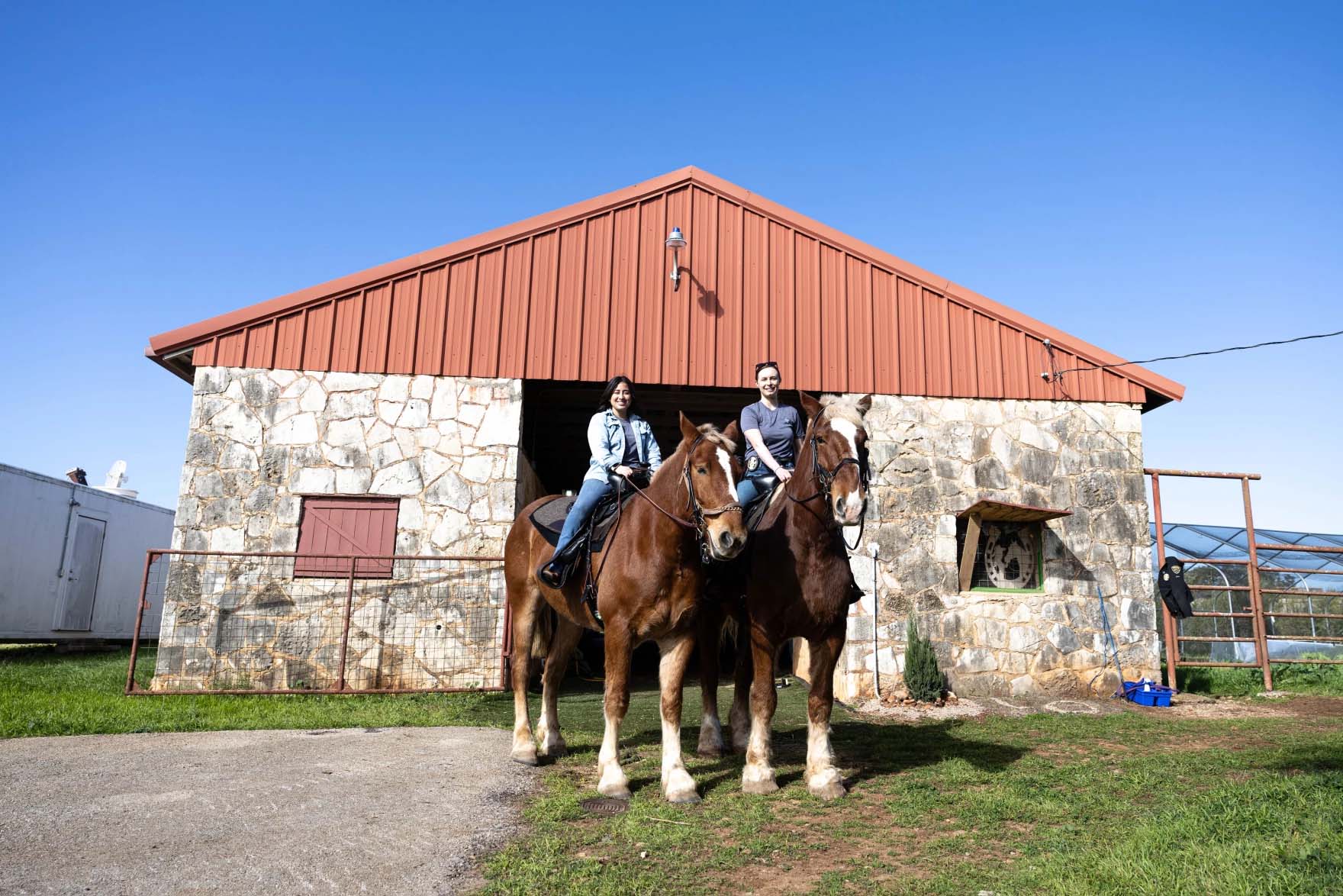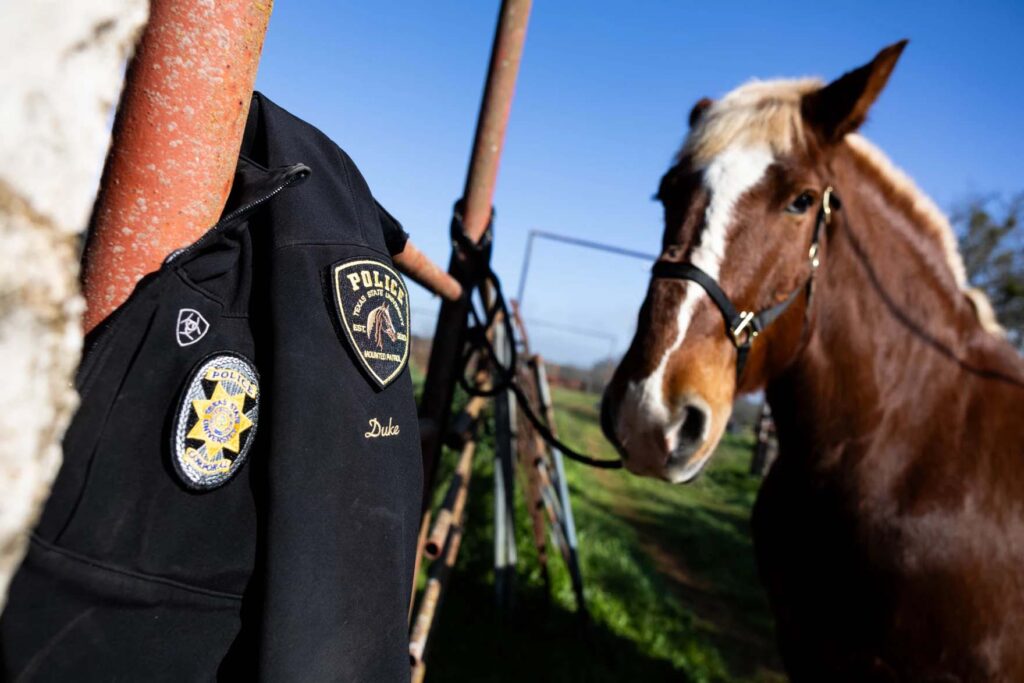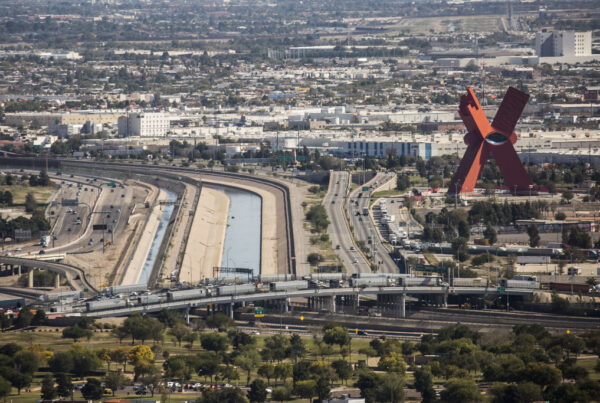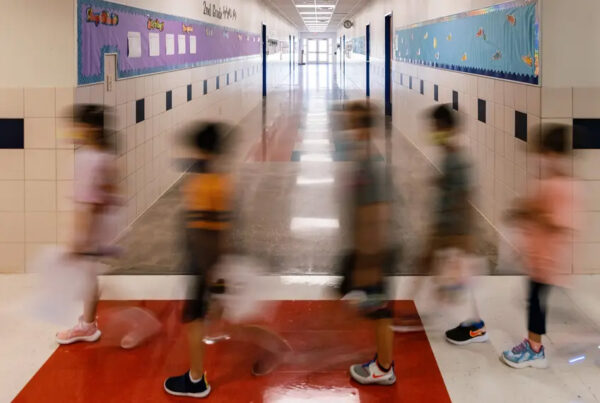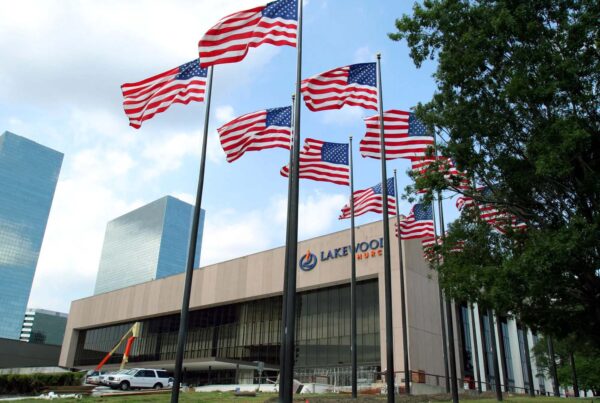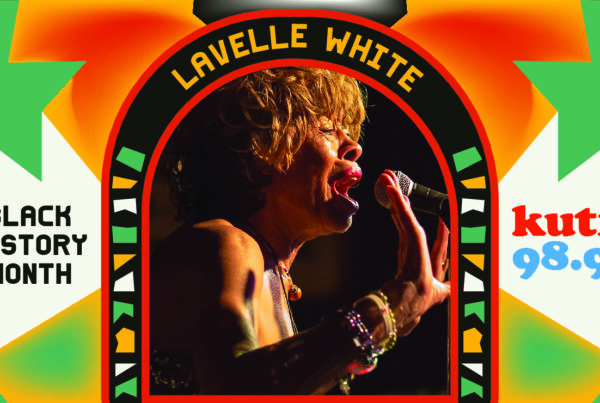From KUT:
It’s a peaceful January morning as two recruits for the Texas State University police department wake up to start their day. The temperatures are a little warmer than what they’re used to, though they have plenty of room to train at their new home, Freeman Ranch. The air is full of birdsong, sounds of distant cattle, morning dew and the smell of their own manure.
Duke and Lyndon are the newest members of the university police force, and they just so happen to be horses.
Cpls. Aleysha Ortiz and Haley McClaran will ride the horses around campus in the fall.
Duke and Lyndon are both Clydesdales, a Scottish horse breed known for its large size and weight. The corporals visit the ranch every day to train and take care of them.
“Building this program from ground up, it’s a lot of work,” Ortiz said.
Ortiz and McClaran said they didn’t expect their police training to include hoof-cleaning and horse-feeding, but they’ve gotten pretty good at it.
“I’m just learning, we’re both learning,” Ortiz said while petting Lydon’s head.
Prior to joining the program, she said she didn’t have any experience with horses, but Lyndon is young and getting used to her, too.
“I think it’s the right fit because I’d rather both of us learn together,” Ortiz said.
At five years old, Lyndon is half Duke’s age, and Ortiz said the horses have a sibling-like relationship: Duke can be anxious and overprotective. Lyndon likes to pick fights and can’t sit still.
“Duke can be a bully sometimes, he takes my baby’s food,” she said. “Once Duke is finished [eating], he goes to Lyndon’s bucket. Now we have to tie Duke up.”
Despite their childish rivalry, Duke and Lyndon have grown-up jobs. By the fall, they’ll be sworn-in officers, complete with police badges to wear around their necks.
“They’re going to be like any other officers,” Ortiz said. “You hurt and hit my horse? That’s an assault on an officer, a public servant.”
This begs the ultimate question: If you give Duke or Lyndon an apple or a carrot, could that constitute bribing an officer?
“Nah, we won’t charge you with it,” Ortiz said with a laugh.
It probably won’t end well, though, as the horses are still on a strict hay-only diet.
Why add horses to the university police department?
Although not entirely convenient, horses are often used by city police departments to maneuver in tight spaces like sidewalks and shop streets. The City of Austin uses mounted horse patrol to support ground officers on downtown streets at night, stating one officer on a horse is equal to 10 officers on the ground.
Texas State University officials said this program will make them the first Texas university with a mounted horse patrol unit.
Cpls. Ortiz and McClaran said riding on horseback will allow them to access parts of campus a car can’t get to and will give them a good vantage point to look over large crowds. The officers also hope it will help create better connections with students.
“We want to meet people and to enhance our bond through these horses,” Capt. Daniel Benitez said in a press release. “We want to create an environment where people aren’t afraid to approach an officer for questions or for help.”
Ortiz said she hopes having officers riding through the student quads will make officers more approachable than if they were sitting in their cars on the outskirts of campus.
“It’s hard to get the students, the Bobcat community, to come talk to us,” Ortiz said. “[On a horse] you see a lot more, you’re talking to a lot more people, you’re able to engage more people.”
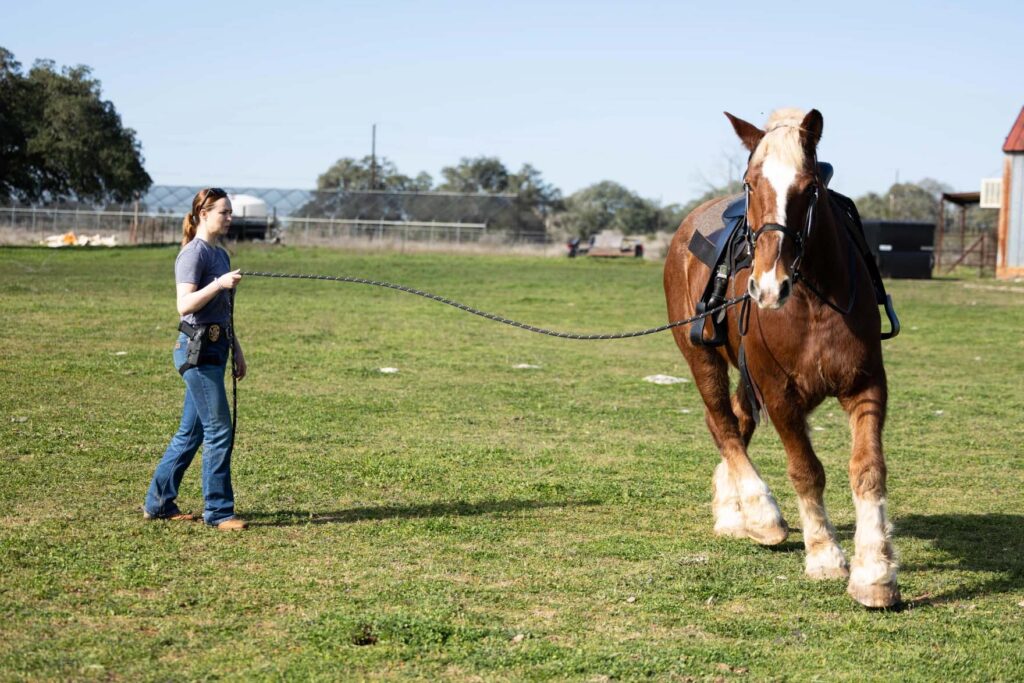
Cpl. Haley McClaran warms up Duke in a field at Freeman Ranch. The horses must complete training before they can be sworn in.
The horses will also be used for crowd control
Texas State’s UPD said the horses will be trained and used to maintain crowd control at large events. McClaran said this will be especially critical in the fall as Texas State gets ready to host the first of four presidential debates on Monday, Sept. 16.
“I can only imagine that it’s going to draw a big crowd,” McClaran said. “We’ll be there kind of just keeping an eye out, making sure nobody’s trying to do something crazy, sneak in… making sure nobody does anything they’re not supposed to.”
McClaran said the department is preparing for protests and large gatherings leading up to the event and on the day of, but they don’t have any concrete plans involving the mounted patrol. She expects they’ll need to help escort people in and out of buildings and peer over rowdy crowds, keeping an eye out for any suspicious activity.
Evan Bookman is a Texas State University staff member who recently graduated from the university with a degree in political science. Instead of making officers more approachable, he believes Duke and Lyndon may end up having the opposite effect on some students.
“The whole image of a mounted patrol has a racist history,” he said. “So that in and of itself is going to make students, especially Black students, feel uncomfortable and unsafe.”
Bookman said he’s seen university police react aggressively to students during protests and is afraid the horses could potentially injure students if they’re used for crowd control.
He recalls seeing videos of an incident in 2019. During an on-campus protest, a woman is seen being pushed to the ground and handcuffed by officers as others look on. The university issued a statement shortly after, saying four students were arrested after a “physical altercation between two students.”
In a statement to KUT, Chief Matthew Carmichael said the department acknowledges the “tumultuous origins of law enforcement in the United States,” and hopes the program will result in more positive and nonconfrontational engagements with students. Part of that, he said, is having an all-female mounted patrol team.
“For those students who harbor reservations or lack trust in police, I implore you to afford us an opportunity to serve you,” he said in the statement. “Let us collectively set a positive example of policing for others to learn from and emulate.”
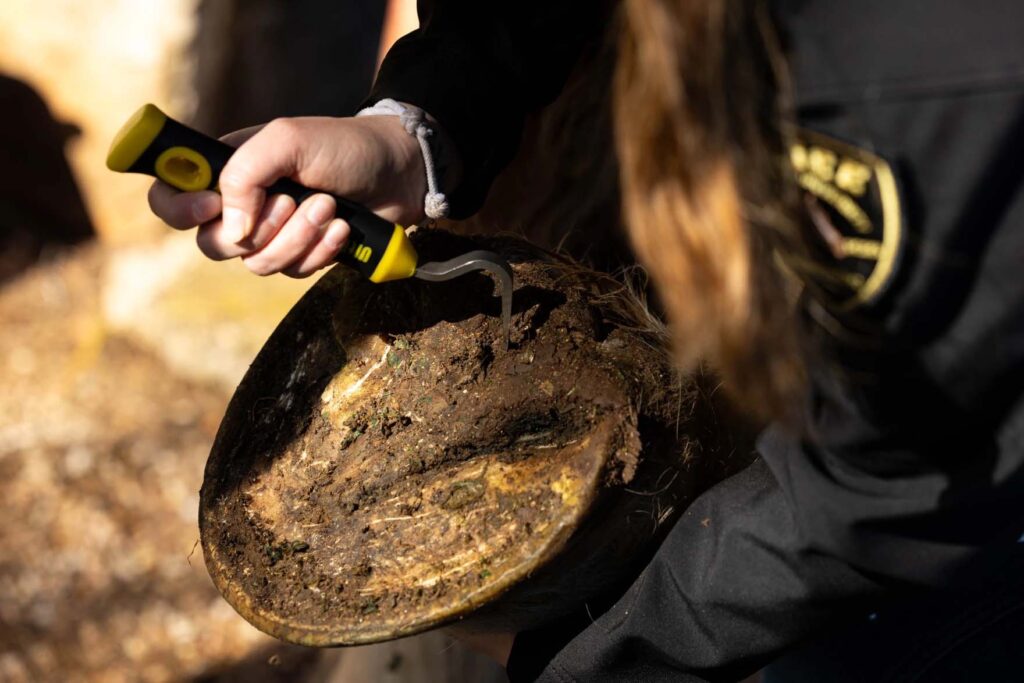
Cpl. Haley McClaran cleans manure out of Duke’s hooves as part of their daily routine.
Patricia Lim / KUT News
Still getting used to their new home
Duke and Lyndon have been brought out to several football games and have wandered around campus to get familiar with loud sounds and large crowds. Ortiz said, so far, they’ve been a big hit with the people they’ve met.
“They were in love,” she said. “[Lyndon] was falling asleep with how many times people were petting him, he was standing there sleeping.”
Kaison Ward is a sophomore studying theater at Texas State. He said he grew up around horses and thinks the program will be a great way to bridge the gap between students and officers.
“As a Black man, I don’t feel I can approach police officers sometimes,” he said. “When they’re in their car, on their computers, I feel like I’m interrupting something.”
He hopes students will get a chance to pet Duke and Lyndon between class periods.
“You’re able to see [the officer’s] faces, see a smile,” Ward said. “I love horses, so maybe that’s just me, but, I feel like they’re going to be more approachable on horseback.”
There are currently no plans to expand the horse patrol, but Duke and Lyndon won’t be lonely. They will soon have students helping at their stables and dozens of people to interact with on campus.
Until then, they can be found trotting circles around trees and eating tons and tons of hay.


